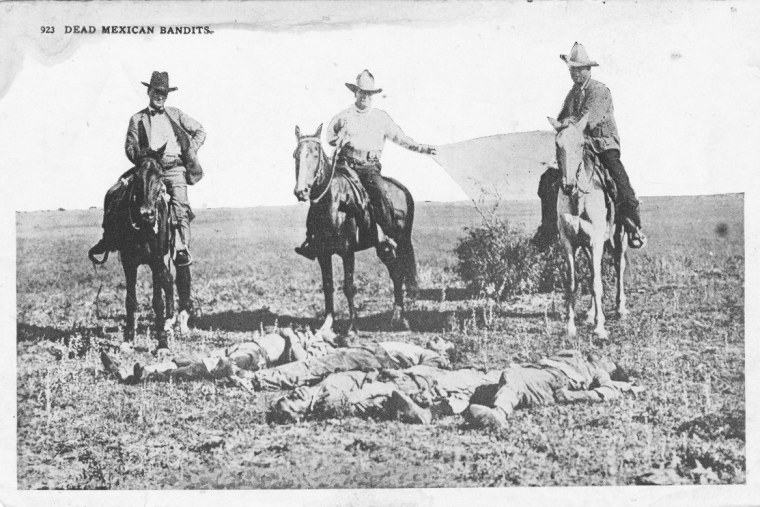A professor of history whose research led him to discover that his own family had been victims of racial violence in Texas is the recipient of a national award.
Trinidad Gonzales, a professor of history and Mexican American studies at South Texas College, has been honored with the 2022 John Lewis Award for History and Social Justice.
The award, established in 2021, is named after Rep. John Lewis, D-Ga., the renowned civil rights leader who served in Congress from 1987 until his death in 2020. The annual award recognizes a historian for leadership and professional historical contribution to public culture and social justice.
"I didn't even know I was nominated — it just came out of nowhere," Gonzales said Friday in an interview. "Those are some very big shoes to try to fill, so I'm humbled by whoever nominated me, thinking I was worthy."
Gonzales is a co-founder of Refusing to Forget, an award-winning educational nonprofit founded by a team of professors that spotlights the history of state-sanctioned killings of Mexicans and Mexican Americans on the Mexico-Texas border from 1910 to 1920.

When Gonzales was doing research for his dissertation, he had a “chilling moment,” he told South Texas College in 2020. As he was reading an account from 1929 denouncing a sheriff for his involvement in a massacre, it included a list of people who had been killed — and he found the names of his great-grandfather and great-great-grandfather.
Growing up, he said in the interview, he had heard from his parents about the killings but did not know the term "La Matanza," or the massacre, which specifically refers to a period in 1915 when several hundred Mexicans and Mexicans Americans were killed in the Lower Rio Grande Valley.
Refusing to Forget's work spurred an award-winning exhibit at the Bullock Texas State History Museum in Austin — the first time the state had publicly addressed "La Matanza."
As NBC News previously reported, the exhibit relies on state-held documents, photos and even a graphic postcard to tell and support the story of the violence, which was committed largely by the Texas Rangers — a state police force — and local law enforcement.
Refusing to Forget has been recognized with the Western Historical Association's Autry Public History prize, American Historical Association's Herbert Feis Award and the Organization of American History's Friend of History Award.
At South Texas College, Gonzales likes to focus on the Lower Rio Grande Valley's history, as many of his students are unfamiliar with it. More than 95% of South Texas College's student body is Hispanic and more than 60% of students are the first in their family to attend college.
"A lot of students don't realize the significance of the area's history to the development of the United States and other world events. And so they have been brought up with a negative view of the community and its place within the United States," he told South Texas College.
Gonzales has also pushed for Mexican American history in the state’s curriculum and books. He played a role in a five-year battle to help change state standards for high school Mexican American history classes. During the process, Gonzales and 15 other scholars rejected and testified against a proposed racist textbook of Mexicans and Mexican Americans in front of the State Board of Education.
“We all knew internally that it wasn’t just simply a fight for Mexican American studies,” Gonzales told South Texas College. “It is also a fight to open up all studies that should be included in high school education.”
Gonzales said he worries that the politics around K-12 education, particularly around critical race theory, could have a negative impact on what history is taught in the state's schools.
"We're fearful that they're going to try to eliminate Mexican American studies, African American Studies, Indigenous Studies and Asian American studies," Gonzales said in the interview. "We'll see where it goes with the new State Board of Education in Texas."

